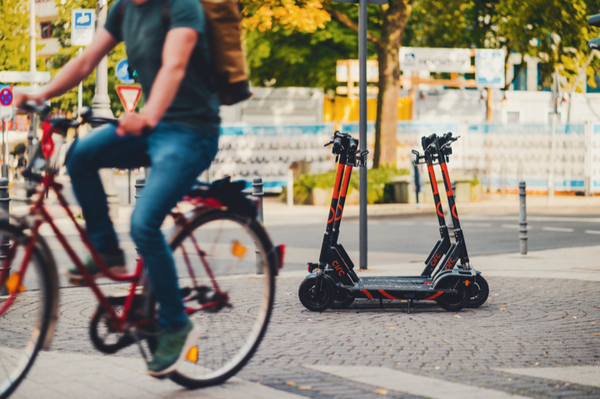Are you nervous about your return to work?


Thirty Five per cent of workers reported feeling anxious about commuting to work after lockdown, according to a CIPD report.
As part of the E-scootability index, the team at Uswitch crunched the numbers to reveal how much those returning to work (using Newcastle as an example, as this is the most e-scooter friendly city, with Leeds having the most e-scooter friendly roads) will save on their electric scooter commute.
Travelling to work on an electric scooter in Newcastle will save commuters £15.17 a month - that's 25% of the average price to commute (£60).
Electric scooter commuting allows travellers to isolate themselves from other commuters at a discounted and energy-efficient rate! But as a lady are these practical? We have one here at our office to try out, to see just how practical they are for zipping around town, we will let you know how we get on!
Rented e-scooters look set to ride to the rescue as the UK begins to return to work. And according to new research from Uswitch.com.
Taking a seed list 40 of the UK’s most populous cities, the energy team at Uswitch have analysed the ‘e-scootability’ of each city, based on metrics such as air quality, pothole complaints, bike thefts and planned cycle with a maximum score of 70 available.
Scoring 50 out of 70 available points, Newcastle topped the index, owing to 13km of planned cycle lanes and 8,306 potential commuters who could benefit from the rental scheme.
The North is home to the most e-scootable cities. Seven out of the top 10 are located in the north of England; Newcastle, Carlisle, Hull, Salford, Preston, Manchester and Sunderland all score high on the e-scootability index.
The air quality rankings saw Preston and Carlisle top the list which would make for a pleasant e-scooter commute. Cities scoring low on this metric such as Wolverhampton and Wakefield could also benefit from the emission free advantages that e-scooter bring.
The study also scored each city based on the number of pothole complaints made via FixMyStreet. Leeds had the smoothest roads for scootering, followed by Exeter and Cambridge.
To understand the potential uptake of e-scooters, we scored each city based on the commuters already using two wheels to get to work. Cambridge topped the list with 15.34% of the population already cycling, followed by Westminster (12.42%), Oxford (8.75%) and York (5.29%).
Will Owen, energy expert from Uswitch comments on the results of the e-scootability index: “Cities all over the UK have been working hard to stop the spread of COVID-19 and with lockdown finally easing, we’re seeing a welcome push towards climate-friendly transport options such as e-scooters.
“Later this year, the UK will join several European countries including Spain, France and Italy following the release of the DfT’s e-scooter rental framework. 50 city councils have already applied to be part of the trial.
“But the research behind the e-scootability index revealed that some cities were more ‘geared’ up for their arrival than others, with cities in the north making up 70% of the top 10 list.
“Rental e-scooters will be banned from footpaths to protect pedestrians so road safety is another factor that needs to be considered. Alongside the obvious environmental benefits of e-scooter rental schemes, there are many other factors for regulators to consider.